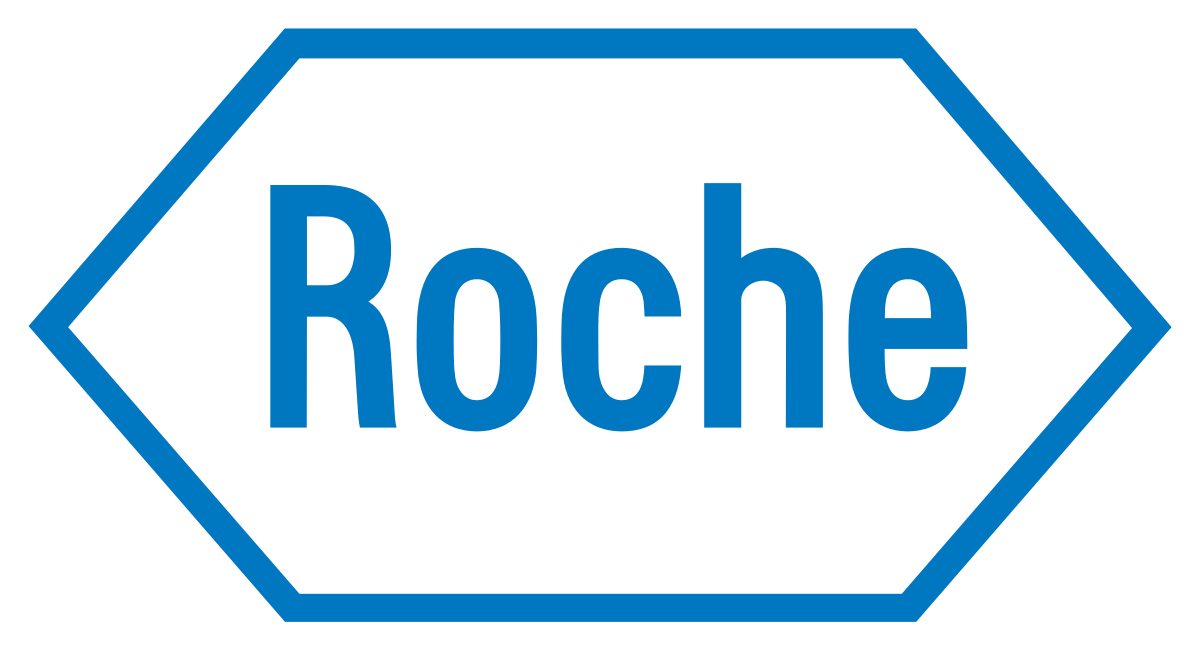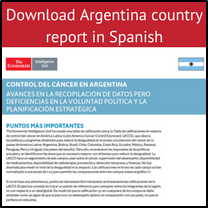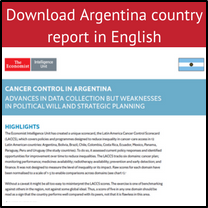Healthcare perspectives from The Economist Intelligence Unit
Stroke risk prevention policies fall worryingly short of best practices, Economist Intelligence Unit study finds
Related content

Value-based healthcare in Sweden: Reaching the next level
The need to get better value from healthcare investment has never been more important as ageing populations and increasing numbers of people with multiple chronic conditions force governments to make limited financial resources go further.
These pressures, along with a greater focus on patient-centred care, have raised the profile of VBHC, especially in European healthcare systems. Sweden, with its highly comprehensive and egalitarian healthcare system, has been a leader in implementing VBHC from the beginning, a fact that was underscored in a 2016 global assessment of VBHC published by The Economist Intelligence Unit.
This paper looks at the ways in which Sweden has implemented VBHC, the areas in which it has faced obstacles and the lessons that it can teach other countries and health systems looking to improve the value of their own healthcare investments.

Breast cancer patients and survivors in the Asia-Pacific workforce
With more older women also working, how will the rising trend of breast cancer survivorship manifest in workplace policies, practices and culture? What challenges do breast cancer survivors face when trying to reintegrate into the workforce, or to continue working during treatment? How can governments, companies and society at large play a constructive role?
This series of reports looks at the situation for breast cancer survivors in Australia, New Zealand and South Korea. It finds that while progress has been made, more needs to be done, particularly in South Korea, where public stigma around cancer remains high.
The Cost of Silence
Cardiovascular diseases levy a substantial financial toll on individuals, their households and the public finances. These include the costs of hospital treatment, long-term disease management and recurring incidence of heart attacks and stroke. They also include the costs of functional impairment and knock-on costs as families may lose breadwinners or have to withdraw other family members from the workforce to care for a CVD patient. Governments also lose tax revenue due to early retirement and mortality, and can be forced to reallocate public finances from other budgets to maintain an accessible healthcare system in the face of rising costs.
As such, there is a need for more awareness of the ways in which people should actively work to reduce their CVD risk. There is also a need for more primary and secondary preventative support from health agencies, policymakers and nongovernmental groups.
To inform the decisions and strategies of these stakeholders, The Economist Intelligence Unit and EIU Healthcare, its healthcare subsidiary, have conducted a study of the prevalence and costs of the top four modifiable risk factors that contribute to CVDs across the Asian markets of China, Australia, Hong Kong, Japan, Singapore, South Korea, Taiwan and Thailand.
Download the report to learn more.
The Latin America Cancer Control Scorecard - Versión en español
Hemos evaluado políticas y programas para el control del cáncer en 12 países de América Latina. Obtenga más información viendo nuestro video animado.
Related content

Value-based healthcare in Sweden: Reaching the next level
The need to get better value from healthcare investment has never been more important as ageing populations and increasing numbers of people with multiple chronic conditions force governments to make limited financial resources go further.
These pressures, along with a greater focus on patient-centred care, have raised the profile of VBHC, especially in European healthcare systems. Sweden, with its highly comprehensive and egalitarian healthcare system, has been a leader in implementing VBHC from the beginning, a fact that was underscored in a 2016 global assessment of VBHC published by The Economist Intelligence Unit.
This paper looks at the ways in which Sweden has implemented VBHC, the areas in which it has faced obstacles and the lessons that it can teach other countries and health systems looking to improve the value of their own healthcare investments.

Breast cancer patients and survivors in the Asia-Pacific workforce
With more older women also working, how will the rising trend of breast cancer survivorship manifest in workplace policies, practices and culture? What challenges do breast cancer survivors face when trying to reintegrate into the workforce, or to continue working during treatment? How can governments, companies and society at large play a constructive role?
This series of reports looks at the situation for breast cancer survivors in Australia, New Zealand and South Korea. It finds that while progress has been made, more needs to be done, particularly in South Korea, where public stigma around cancer remains high.
The Cost of Silence
Cardiovascular diseases levy a substantial financial toll on individuals, their households and the public finances. These include the costs of hospital treatment, long-term disease management and recurring incidence of heart attacks and stroke. They also include the costs of functional impairment and knock-on costs as families may lose breadwinners or have to withdraw other family members from the workforce to care for a CVD patient. Governments also lose tax revenue due to early retirement and mortality, and can be forced to reallocate public finances from other budgets to maintain an accessible healthcare system in the face of rising costs.
As such, there is a need for more awareness of the ways in which people should actively work to reduce their CVD risk. There is also a need for more primary and secondary preventative support from health agencies, policymakers and nongovernmental groups.
To inform the decisions and strategies of these stakeholders, The Economist Intelligence Unit and EIU Healthcare, its healthcare subsidiary, have conducted a study of the prevalence and costs of the top four modifiable risk factors that contribute to CVDs across the Asian markets of China, Australia, Hong Kong, Japan, Singapore, South Korea, Taiwan and Thailand.
Download the report to learn more.
The Latin America Cancer Control Scorecard
We have assessed cancer-control policies and programmes in 12 Latin American countries. Learn more by watching our animated video.
Related content

Value-based healthcare in Sweden: Reaching the next level
The need to get better value from healthcare investment has never been more important as ageing populations and increasing numbers of people with multiple chronic conditions force governments to make limited financial resources go further.
These pressures, along with a greater focus on patient-centred care, have raised the profile of VBHC, especially in European healthcare systems. Sweden, with its highly comprehensive and egalitarian healthcare system, has been a leader in implementing VBHC from the beginning, a fact that was underscored in a 2016 global assessment of VBHC published by The Economist Intelligence Unit.
This paper looks at the ways in which Sweden has implemented VBHC, the areas in which it has faced obstacles and the lessons that it can teach other countries and health systems looking to improve the value of their own healthcare investments.

Breast cancer patients and survivors in the Asia-Pacific workforce
With more older women also working, how will the rising trend of breast cancer survivorship manifest in workplace policies, practices and culture? What challenges do breast cancer survivors face when trying to reintegrate into the workforce, or to continue working during treatment? How can governments, companies and society at large play a constructive role?
This series of reports looks at the situation for breast cancer survivors in Australia, New Zealand and South Korea. It finds that while progress has been made, more needs to be done, particularly in South Korea, where public stigma around cancer remains high.
The Cost of Silence
Cardiovascular diseases levy a substantial financial toll on individuals, their households and the public finances. These include the costs of hospital treatment, long-term disease management and recurring incidence of heart attacks and stroke. They also include the costs of functional impairment and knock-on costs as families may lose breadwinners or have to withdraw other family members from the workforce to care for a CVD patient. Governments also lose tax revenue due to early retirement and mortality, and can be forced to reallocate public finances from other budgets to maintain an accessible healthcare system in the face of rising costs.
As such, there is a need for more awareness of the ways in which people should actively work to reduce their CVD risk. There is also a need for more primary and secondary preventative support from health agencies, policymakers and nongovernmental groups.
To inform the decisions and strategies of these stakeholders, The Economist Intelligence Unit and EIU Healthcare, its healthcare subsidiary, have conducted a study of the prevalence and costs of the top four modifiable risk factors that contribute to CVDs across the Asian markets of China, Australia, Hong Kong, Japan, Singapore, South Korea, Taiwan and Thailand.
Download the report to learn more.
Cancer in LATAM: Country Reports
Related content

Value-based healthcare in Sweden: Reaching the next level
The need to get better value from healthcare investment has never been more important as ageing populations and increasing numbers of people with multiple chronic conditions force governments to make limited financial resources go further.
These pressures, along with a greater focus on patient-centred care, have raised the profile of VBHC, especially in European healthcare systems. Sweden, with its highly comprehensive and egalitarian healthcare system, has been a leader in implementing VBHC from the beginning, a fact that was underscored in a 2016 global assessment of VBHC published by The Economist Intelligence Unit.
This paper looks at the ways in which Sweden has implemented VBHC, the areas in which it has faced obstacles and the lessons that it can teach other countries and health systems looking to improve the value of their own healthcare investments.

Breast cancer patients and survivors in the Asia-Pacific workforce
With more older women also working, how will the rising trend of breast cancer survivorship manifest in workplace policies, practices and culture? What challenges do breast cancer survivors face when trying to reintegrate into the workforce, or to continue working during treatment? How can governments, companies and society at large play a constructive role?
This series of reports looks at the situation for breast cancer survivors in Australia, New Zealand and South Korea. It finds that while progress has been made, more needs to be done, particularly in South Korea, where public stigma around cancer remains high.
The Cost of Silence
Cardiovascular diseases levy a substantial financial toll on individuals, their households and the public finances. These include the costs of hospital treatment, long-term disease management and recurring incidence of heart attacks and stroke. They also include the costs of functional impairment and knock-on costs as families may lose breadwinners or have to withdraw other family members from the workforce to care for a CVD patient. Governments also lose tax revenue due to early retirement and mortality, and can be forced to reallocate public finances from other budgets to maintain an accessible healthcare system in the face of rising costs.
As such, there is a need for more awareness of the ways in which people should actively work to reduce their CVD risk. There is also a need for more primary and secondary preventative support from health agencies, policymakers and nongovernmental groups.
To inform the decisions and strategies of these stakeholders, The Economist Intelligence Unit and EIU Healthcare, its healthcare subsidiary, have conducted a study of the prevalence and costs of the top four modifiable risk factors that contribute to CVDs across the Asian markets of China, Australia, Hong Kong, Japan, Singapore, South Korea, Taiwan and Thailand.
Download the report to learn more.
Value-based healthcare in Korea: A pioneer in Asia - Korean
한국은 보건의료비용 지출에 관한 결정을 내릴 때 가치 기반 분석을 근거로 삼는 국가로, 아시아 지역을 이끄는 선도국가 중 하나이다. 한국은 인근에서 종합적 건강보험 체계를 가진 유일한 나라로, 직접 비용 지출의 의사 결정에 건강보험 데이터를 활용하고 있다.
한국의 정책 결정권자들은 인근 지역과 대비되는 눈에 띄는 행보를 보이며 2007년 이래 보건 투자와 관련된 결정을 내릴 때 비용 효과성(cost-effectiveness, CE)이라는 수단을 이용해 왔다. 하지만, 한국에서 보건의료기술평가(Health Technology Assessment, HTA) 시스템에 가치 기반 분석을 완전히 내재하도록 보장하려면 아직 갈 길이 멀다. 이는 주로정치권과 정책 결정권자들이 지금보다 명확한 약속을 해주어야 실현할 수 있을 것으로 전망된다.
한국에서는 인구 노령화가 진행 중이고 새로운 치료법에 드는 비용은 꾸준히 증가하고 있으므로, 한국 정책 결정권자들은 앞으로 희박한 자원을 어디에 투자해야 할지 이전보다 더욱 까다로운 선택에 직면하게 될 것이다. 증가되는 가치를 위한 안정적이고 투명한 프레임워크를 개발하는 작업이 시급한 상황이다.
Related content

Value-based healthcare in Taiwan: Towards a leadership role in Asia
A value-based approach to healthcare is gradually gaining traction in Taiwan, as the country’s healthcare system confronts the opportunities and pressures of innovative new medical treatments along with a growing burden of both chronic and infectious diseases.
Any efforts to move Taiwan along in the process of establishing value measures will need to look at several key issues that have an impact on the future course of value-based healthcare: how the country’s healthcare decision-making institutions interpret value; who the main stakeholders with an input into the decision-making process are and should be; and what aspects of healthcare can logistically be evaluated within a value-based framework. In addition, experts say the health system will need to find ways to use its health technology assessment (HTA) capabilities to identify low-value areas where it is prudent to reduce investment in order to free up resources for more cost-effective expenditures. This process will require a more integrated use of HTA to evaluate not only medical treatments and devices, but entire care pathways.
Read the report in English | 繁體中文
Value-based healthcare in Japan
Value-based healthcare looks at health outcomes of treatment relative to cost. In this particular report The EIU examines whether Japan's healthcare system delivers good value for money, its approach to pricing and reimbursement, and the evolution of a nascent system for health technology assessment (HTA).
Further reading:
An introduction to value-based healthcare in Europe Value-based Health Assessment in Italy: A decentralised model Value-based healthcare in Germany: From free price-setting to a regulated market Value-based healthcare in Spain: Regional experimentation in a shared governance setting Value-based healthcare in France: A slow adoption of cost-effectiveness criteria Value-based healthcare in Portugal: Necessity is the mother of invention Value-based healthcare in the UK: A system of trial and error Value-based healthcare in Europe: Laying the foundation
Value-based healthcare in Europe: Laying the foundation
Value-based healthcare looks at health outcomes of treatment relative to cost. In this particular report The EIU examines the way in which value is interpreted across the continent, the extent to which European countries are adopting cost-effectiveness as a key criterion for assessing it, and the efforts to develop new models for pricing innovation.
Further reading:
An introduction to value-based healthcare in Europe Value-based Health Assessment in Italy: A decentralised model Value-based healthcare in Germany: From free price-setting to a regulated market Value-based healthcare in Spain: Regional experimentation in a shared governance setting Value-based healthcare in France: A slow adoption of cost-effectiveness criteria Value-based healthcare in Portugal: Necessity is the mother of invention Value-based healthcare in the UK: A system of trial and errorThe future of healthcare
Imagine being diagnosed by an AI doctor, having your organs 3D printed, or having nanometer-sized robots roaming around your body to monitor your health. Are you excited or scared? All of these technologies might seem like science fiction for now, but they could become reality in the next 25, or even 5 years.
Related content

Value-based healthcare in Sweden: Reaching the next level
The need to get better value from healthcare investment has never been more important as ageing populations and increasing numbers of people with multiple chronic conditions force governments to make limited financial resources go further.
These pressures, along with a greater focus on patient-centred care, have raised the profile of VBHC, especially in European healthcare systems. Sweden, with its highly comprehensive and egalitarian healthcare system, has been a leader in implementing VBHC from the beginning, a fact that was underscored in a 2016 global assessment of VBHC published by The Economist Intelligence Unit.
This paper looks at the ways in which Sweden has implemented VBHC, the areas in which it has faced obstacles and the lessons that it can teach other countries and health systems looking to improve the value of their own healthcare investments.

Breast cancer patients and survivors in the Asia-Pacific workforce
With more older women also working, how will the rising trend of breast cancer survivorship manifest in workplace policies, practices and culture? What challenges do breast cancer survivors face when trying to reintegrate into the workforce, or to continue working during treatment? How can governments, companies and society at large play a constructive role?
This series of reports looks at the situation for breast cancer survivors in Australia, New Zealand and South Korea. It finds that while progress has been made, more needs to be done, particularly in South Korea, where public stigma around cancer remains high.
The Cost of Silence
Cardiovascular diseases levy a substantial financial toll on individuals, their households and the public finances. These include the costs of hospital treatment, long-term disease management and recurring incidence of heart attacks and stroke. They also include the costs of functional impairment and knock-on costs as families may lose breadwinners or have to withdraw other family members from the workforce to care for a CVD patient. Governments also lose tax revenue due to early retirement and mortality, and can be forced to reallocate public finances from other budgets to maintain an accessible healthcare system in the face of rising costs.
As such, there is a need for more awareness of the ways in which people should actively work to reduce their CVD risk. There is also a need for more primary and secondary preventative support from health agencies, policymakers and nongovernmental groups.
To inform the decisions and strategies of these stakeholders, The Economist Intelligence Unit and EIU Healthcare, its healthcare subsidiary, have conducted a study of the prevalence and costs of the top four modifiable risk factors that contribute to CVDs across the Asian markets of China, Australia, Hong Kong, Japan, Singapore, South Korea, Taiwan and Thailand.
Download the report to learn more.
Value-based healthcare in Korea: A pioneer in Asia
Korea’s healthcare infrastructure is well developed compared to that of neighbouring countries. In addition, cost-effectiveness is well established as one aspect of the process used to analyse healthcare value for money. However, a consistent understanding of what value entails is still not established.
Moreover, given its relatively low level of health spending compared with that of other developed countries, Korea has scope to increase health spending. At the same time, with Korea’s population ageing at a similar rate to those of its peers, stark choices lie ahead.
Related content

Value-based healthcare in Taiwan: Towards a leadership role in Asia
A value-based approach to healthcare is gradually gaining traction in Taiwan, as the country’s healthcare system confronts the opportunities and pressures of innovative new medical treatments along with a growing burden of both chronic and infectious diseases.
Any efforts to move Taiwan along in the process of establishing value measures will need to look at several key issues that have an impact on the future course of value-based healthcare: how the country’s healthcare decision-making institutions interpret value; who the main stakeholders with an input into the decision-making process are and should be; and what aspects of healthcare can logistically be evaluated within a value-based framework. In addition, experts say the health system will need to find ways to use its health technology assessment (HTA) capabilities to identify low-value areas where it is prudent to reduce investment in order to free up resources for more cost-effective expenditures. This process will require a more integrated use of HTA to evaluate not only medical treatments and devices, but entire care pathways.
Read the report in English | 繁體中文
Value-based healthcare in Japan
Value-based healthcare looks at health outcomes of treatment relative to cost. In this particular report The EIU examines whether Japan's healthcare system delivers good value for money, its approach to pricing and reimbursement, and the evolution of a nascent system for health technology assessment (HTA).
Further reading:
An introduction to value-based healthcare in Europe Value-based Health Assessment in Italy: A decentralised model Value-based healthcare in Germany: From free price-setting to a regulated market Value-based healthcare in Spain: Regional experimentation in a shared governance setting Value-based healthcare in France: A slow adoption of cost-effectiveness criteria Value-based healthcare in Portugal: Necessity is the mother of invention Value-based healthcare in the UK: A system of trial and error Value-based healthcare in Europe: Laying the foundation
Value-based healthcare in Europe: Laying the foundation
Value-based healthcare looks at health outcomes of treatment relative to cost. In this particular report The EIU examines the way in which value is interpreted across the continent, the extent to which European countries are adopting cost-effectiveness as a key criterion for assessing it, and the efforts to develop new models for pricing innovation.
Further reading:
An introduction to value-based healthcare in Europe Value-based Health Assessment in Italy: A decentralised model Value-based healthcare in Germany: From free price-setting to a regulated market Value-based healthcare in Spain: Regional experimentation in a shared governance setting Value-based healthcare in France: A slow adoption of cost-effectiveness criteria Value-based healthcare in Portugal: Necessity is the mother of invention Value-based healthcare in the UK: A system of trial and errorValue-based healthcare in Korea: A pioneer in Asia
Korea is one of Asia’s leaders in using value-based analysis to underpin decisions about healthcare expenditure. The country has one of the region’s only comprehensive health insurance systems, which also provides a rich trove of data that analysts can use to help direct spending decisions.
More from this series
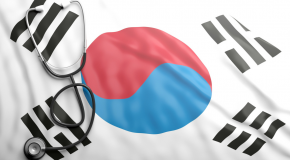
white paper
Value-based healthcare in Korea: A pioneer in Asia
Korea’s healthcare infrastructure is well developed compared to that of neighbouring countries. In addition, cost-

white paper
Value-based healthcare in Korea: A pioneer in Asia - Korean
Related content

Value-based healthcare in Taiwan: Towards a leadership role in Asia
A value-based approach to healthcare is gradually gaining traction in Taiwan, as the country’s healthcare system confronts the opportunities and pressures of innovative new medical treatments along with a growing burden of both chronic and infectious diseases.
Any efforts to move Taiwan along in the process of establishing value measures will need to look at several key issues that have an impact on the future course of value-based healthcare: how the country’s healthcare decision-making institutions interpret value; who the main stakeholders with an input into the decision-making process are and should be; and what aspects of healthcare can logistically be evaluated within a value-based framework. In addition, experts say the health system will need to find ways to use its health technology assessment (HTA) capabilities to identify low-value areas where it is prudent to reduce investment in order to free up resources for more cost-effective expenditures. This process will require a more integrated use of HTA to evaluate not only medical treatments and devices, but entire care pathways.
Read the report in English | 繁體中文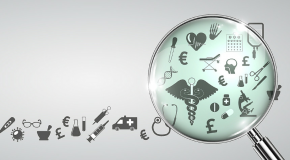
An introduction to value-based healthcare in Europe
European governments, like those in other parts of the world, are feeling the strain on their health budgets caused by an ageing population, a rise in the prevalence of chronic conditions and the acceleration of medical innovations that have increased demand for state-of-the-art treatment. As a result, governments are looking to make their money stretch further.
Traditionally, efficiency in healthcare has been interpreted largely in terms of cost reductions. More recently, healthcare policymakers in developed economies have interpreted the notion of value according to the willingness of health systems or individual health providers to follow best clinical practice. Increasingly, however, practitioners are promoting a more holistic, patient-centred understanding of value—one championed by the academics Michael Porter and Elizabeth Olmsted Teisberg, who first coined the term “value-based healthcare" [1] (VBH) to describe outcomes of health treatment relative to cost.
The effort to assess more accurately the value of healthcare investment has extensive implications for patient access, reimbursement of healthcare providers and health outcomes. Yet, the adoption of VBH assumptions in Europe has been piecemeal so far, with large variations in the extent to which European health systems measure patient outcomes, the ways in which they define value and the metrics that they use to do so. Equally, despite the demand for better access to healthcare innovations, the impact of public opinion on health policy varies across the continent.
Efforts to extend the use of VBH models in Europe have fallen short because of a lack of consensus so far about what performance indicators should be used, who to reward and how to quantify the value of incentives to motivate further efficiency. The absence of data on activity, cost and outcomes is particularly lacking in the area of ambulatory and primary-care-based interventions. A more extensive and standardised approach to VBH will require stronger evidence to support treatment and better co-ordination of care.
[1] Porter, M. E., “What is Value in Health Care?”, The New England Journal of Medicine, 363:2477-2481, December 23rd 2010.
Further reading:
Value-based Health Assessment in Italy: A decentralised model Value-based healthcare in Germany: From free price-setting to a regulated market Value-based healthcare in Spain: Regional experimentation in a shared governance setting Value-based healthcare in France: A slow adoption of cost-effectiveness criteria Value-based healthcare in Portugal: Necessity is the mother of invention Value-based healthcare in the UK: A system of trial and error Value-based healthcare in Europe: Laying the foundation
Value-based healthcare in Japan
Value-based healthcare looks at health outcomes of treatment relative to cost. In this particular report The EIU examines whether Japan's healthcare system delivers good value for money, its approach to pricing and reimbursement, and the evolution of a nascent system for health technology assessment (HTA).
Further reading:
An introduction to value-based healthcare in Europe Value-based Health Assessment in Italy: A decentralised model Value-based healthcare in Germany: From free price-setting to a regulated market Value-based healthcare in Spain: Regional experimentation in a shared governance setting Value-based healthcare in France: A slow adoption of cost-effectiveness criteria Value-based healthcare in Portugal: Necessity is the mother of invention Value-based healthcare in the UK: A system of trial and error Value-based healthcare in Europe: Laying the foundationRelated content

Value-based healthcare in Sweden: Reaching the next level
The need to get better value from healthcare investment has never been more important as ageing populations and increasing numbers of people with multiple chronic conditions force governments to make limited financial resources go further.
These pressures, along with a greater focus on patient-centred care, have raised the profile of VBHC, especially in European healthcare systems. Sweden, with its highly comprehensive and egalitarian healthcare system, has been a leader in implementing VBHC from the beginning, a fact that was underscored in a 2016 global assessment of VBHC published by The Economist Intelligence Unit.
This paper looks at the ways in which Sweden has implemented VBHC, the areas in which it has faced obstacles and the lessons that it can teach other countries and health systems looking to improve the value of their own healthcare investments.

Breast cancer patients and survivors in the Asia-Pacific workforce
With more older women also working, how will the rising trend of breast cancer survivorship manifest in workplace policies, practices and culture? What challenges do breast cancer survivors face when trying to reintegrate into the workforce, or to continue working during treatment? How can governments, companies and society at large play a constructive role?
This series of reports looks at the situation for breast cancer survivors in Australia, New Zealand and South Korea. It finds that while progress has been made, more needs to be done, particularly in South Korea, where public stigma around cancer remains high.
The Cost of Silence
Cardiovascular diseases levy a substantial financial toll on individuals, their households and the public finances. These include the costs of hospital treatment, long-term disease management and recurring incidence of heart attacks and stroke. They also include the costs of functional impairment and knock-on costs as families may lose breadwinners or have to withdraw other family members from the workforce to care for a CVD patient. Governments also lose tax revenue due to early retirement and mortality, and can be forced to reallocate public finances from other budgets to maintain an accessible healthcare system in the face of rising costs.
As such, there is a need for more awareness of the ways in which people should actively work to reduce their CVD risk. There is also a need for more primary and secondary preventative support from health agencies, policymakers and nongovernmental groups.
To inform the decisions and strategies of these stakeholders, The Economist Intelligence Unit and EIU Healthcare, its healthcare subsidiary, have conducted a study of the prevalence and costs of the top four modifiable risk factors that contribute to CVDs across the Asian markets of China, Australia, Hong Kong, Japan, Singapore, South Korea, Taiwan and Thailand.
Download the report to learn more.
The road to a better normal: Breast Cancer patients and survivors in the EU workforce
Healthcare systems in Europe have slowly transformed breast cancer from a fatal condition into a (frequently chronic) disease. This transformation, while greatly welcome, has brought in its wake a growing societal challenge. An increasing number of female breast cancer patients and survivors of working age are capable of returning to employment and wish to do so.1 Not all of them succeed, however, and not simply for medical reasons. Breast cancer creates psychological and economic stress for the women directly involved, but it also impacts society as a whole.
Related content

Value-based healthcare in Sweden: Reaching the next level
The need to get better value from healthcare investment has never been more important as ageing populations and increasing numbers of people with multiple chronic conditions force governments to make limited financial resources go further.
These pressures, along with a greater focus on patient-centred care, have raised the profile of VBHC, especially in European healthcare systems. Sweden, with its highly comprehensive and egalitarian healthcare system, has been a leader in implementing VBHC from the beginning, a fact that was underscored in a 2016 global assessment of VBHC published by The Economist Intelligence Unit.
This paper looks at the ways in which Sweden has implemented VBHC, the areas in which it has faced obstacles and the lessons that it can teach other countries and health systems looking to improve the value of their own healthcare investments.

Breast cancer patients and survivors in the Asia-Pacific workforce
With more older women also working, how will the rising trend of breast cancer survivorship manifest in workplace policies, practices and culture? What challenges do breast cancer survivors face when trying to reintegrate into the workforce, or to continue working during treatment? How can governments, companies and society at large play a constructive role?
This series of reports looks at the situation for breast cancer survivors in Australia, New Zealand and South Korea. It finds that while progress has been made, more needs to be done, particularly in South Korea, where public stigma around cancer remains high.
The Cost of Silence
Cardiovascular diseases levy a substantial financial toll on individuals, their households and the public finances. These include the costs of hospital treatment, long-term disease management and recurring incidence of heart attacks and stroke. They also include the costs of functional impairment and knock-on costs as families may lose breadwinners or have to withdraw other family members from the workforce to care for a CVD patient. Governments also lose tax revenue due to early retirement and mortality, and can be forced to reallocate public finances from other budgets to maintain an accessible healthcare system in the face of rising costs.
As such, there is a need for more awareness of the ways in which people should actively work to reduce their CVD risk. There is also a need for more primary and secondary preventative support from health agencies, policymakers and nongovernmental groups.
To inform the decisions and strategies of these stakeholders, The Economist Intelligence Unit and EIU Healthcare, its healthcare subsidiary, have conducted a study of the prevalence and costs of the top four modifiable risk factors that contribute to CVDs across the Asian markets of China, Australia, Hong Kong, Japan, Singapore, South Korea, Taiwan and Thailand.
Download the report to learn more.


